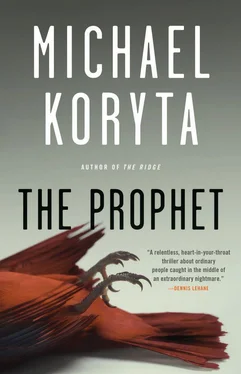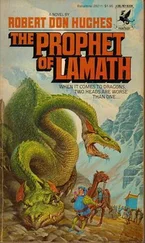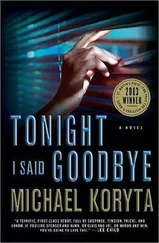“Can I have a minute, Coach?”
Kent didn’t want to give him a minute. He didn’t want anyone in his home except for his family, but of course he could not say that, so he let the boy in and listened as Colin told him that Kent needed to return to the team.
“I appreciate it,” Kent said. “I do. But right now is not a time for me to be involved with football. You need to understand that.”
He realized as he said it that if anyone understood, it was of course this seventeen-year-old boy.
“I’ll be there to support you,” Kent said. “You know that. But, son, I just don’t have much to contribute right now.”
“You’ve seen me play,” Colin said. “You’ve seen exactly what I’ve contributed to these games. Nothing. But, Coach? I didn’t quit on anybody.”
“I’m not quitting on you,” Kent said, but it was a hard position to defend. He’d chosen the stands over the field. It was the right choice, he thought, but how to make that clear to Colin, he was not sure.
“I promised Rachel we’d win it,” Colin said. “You told me that didn’t matter.”
“It doesn’t.”
“When you promised me you’d be there regardless, did that matter?”
The boy was bristling with anger. It went beyond anger, actually. Betrayal, that was the word. Kent looked at him, told him he’d consider the request, and took him to the door. When he closed it, Beth was waiting.
“You heard?” he said.
“Yes.”
“And?”
“You told him you need to be with your family now,” Beth said. “But that team is part of your family, Kent.”
And so he returned. He was at the field when the team arrived for Tuesday’s practice, and nobody said a word to him, not coaches or players, they just waited to hear what he’d come to say.
“I’m not in a very good place right now,” he told his team. “I don’t know how much help I’ll be to you. But I’d appreciate it if you all would let me be around to watch you finish what you started.”
He let Byers run practice, and he helped with the position drills, commenting on technical details, not saying much, just observing. That night he watched video for the first time. Their opponent, Center Grove, was very good. They had a fine quarterback and skilled receivers and they spread teams out and scored lots of points. Their number-one receiver was a great route runner with sure hands, and their number two, a kid named Shepherd, was not so reliable, but he was fast. He could fly, and that threat opened the field. Kent spent an extra hour watching him.
On Wednesday he called Colin aside and asked if he’d watched video from both sides of the ball. Of course Colin had. He watched everything.
“If we needed you to,” Kent said, “could you play press coverage on Shepherd? Could you stick with him?”
Colin stared at him. “You mean at cornerback?”
Kent nodded. “He’s going to give us trouble with his speed. I know you can run with him, and we don’t have anyone else who can. But are you able to play the position if we asked you to go man-to-man on a few plays? Be honest.”
“I know all the routes,” Colin said. He was giving the idea careful consideration, and he nodded. “I can play it.”
“We might never use you,” Kent said. “But it’s an idea.”
They were three minutes into the second quarter when Colin Mears caught his first pass—from the opposing quarterback. The game was tied at seven, and it was the third time they’d rotated him in to play press coverage as a cornerback. Kent was limiting him to down-and-distance situations where he knew they would pass. The first time he chanced it, they ran a draw instead of passing, but Colin flew to the ball without hesitation, coming in wild but fast, laying himself out to assist on the tackle. It took self-sacrifice to hit like that; you couldn’t offer contact without taking some yourself. The next time he lined up at corner, they tried a pass to the tight end, and then, on the third attempt, Center Grove finally tested him. They sent Shepherd on a go route, pure speed down the sideline, and the quarterback put it out in front where only he could get it.
That was the idea, at least. But Colin was with him, it was speed on speed, and while the ball was in the air, he pulled a full stride ahead of Shepherd, eyes up, a receiver’s instincts taking over now, forgetting his man to play the ball.
Just knock it down, Kent thought. That was all he needed to do, just knock it down.
Instead, he caught it. Pivoted and looked surprised, then saw open field ahead of him, and took off. Brought it back to midfield before he was tackled. On the sidelines the kids mobbed him, and Colin was smiling and Kent realized it had been five weeks since he’d seen a smile on the boy’s face. It would not last, but it was there, and he was glad.
“Reward one, risk zero,” Byers said in Kent’s headset.
“My brother’s idea,” Kent answered, pacing down the sideline. The headset went quiet then, none of the other coaches sure what to say, but that was fine. Kent said, “Let’s make them pay, gentlemen,” and then it was football once more.
They led 14–7 at the half, and early in the third quarter, Lorell tried a pass to Colin on a slant route. The Center Grove fans seemed confused by the roar that went up from the Chambers crowd when he caught it for a simple gain of seven yards. He caught another just two plays later, and then Lorell scored on a run, and it was 21–7 and Byers asked Kent if he wanted to try Mears at cornerback again.
“I think we’re good,” Kent said.
It was never a ballgame in the second half. The final score was 35–10.
Beth met him at midfield, the kids at either side, and Kent said, “Why are you crying?” but then her arms were around him and he was crying, too. She reached up and pulled the brim of his hat down to shield them, her face pressed against his, her tears on his. She held him for a long time, and then she leaned back and wiped his face clean with her hand and said, “Go talk to your team.”
He went to them. They circled at midfield, the way his teams had in so many season-ending games before, but this one was different. He did not need to tell them where the victory was tonight, where they might find it. The trophy was making its way through the ranks, everyone wanting a hand on it, and Kent watched and tried to prepare the right words.
“Gentlemen,” he said, “I know this feels like a moment of pure celebration, and celebrate we will, but first I need to…”
He stopped then. Remind you, that’s what he’d been about to say, remind, remind, prepare, prepare. But they had been reminded and they had been prepared and tonight they had won. Tomorrow might bring different things their way, but tonight they had won.
“I need to thank you,” he said. That was all he had for them, tonight.
The prison occupies just over eleven hundred acres, most of that covered with pavement or buildings, tall fences and razor wire protecting the perimeter. It’s a bleak place on the most beautiful of days, but in February, beneath gray sky and above week-old snow, it’s particularly foreboding. Hundreds of people make their way to and from the brick buildings each day for work; more than two thousand remain inside. For them it is home.
The man and the boy are just visitors. The man is familiar with the place, the boy is not. They check in, pass a security screening, and follow a corrections officer down a winding corridor and through a series of doors that lock behind them as they pass. The boy, tall and lean and agile, looks at each door as it closes. The man asks him if he’s certain he wants to do this, to be here.
The boy says he is.
Читать дальше












